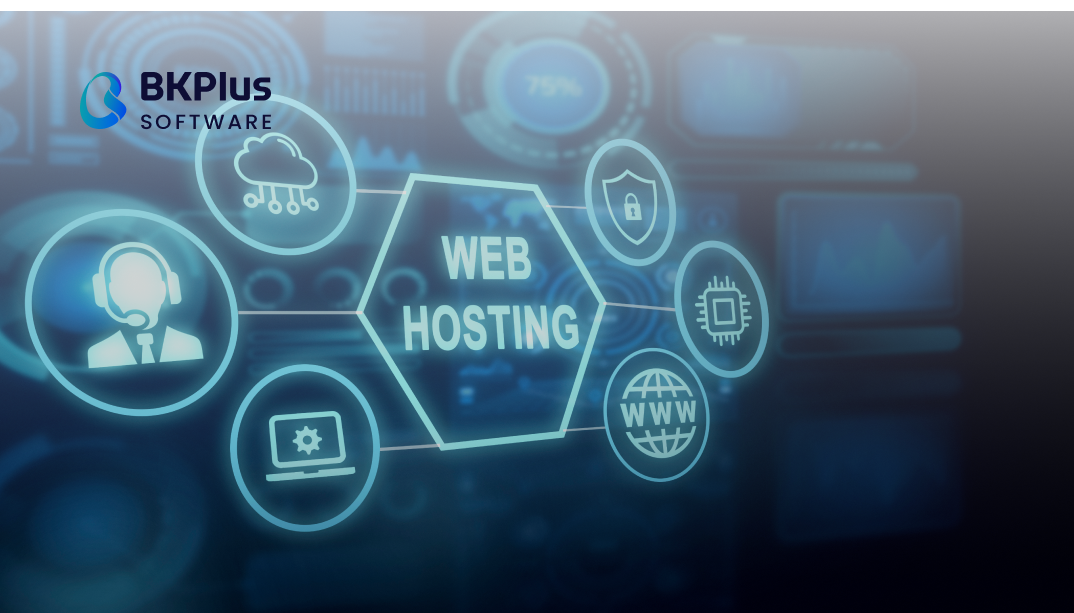When you start building a website, it can be tempting to jump straight into the aesthetic elements that make a site “wow-worthy”. But if the page takes forever to load, your visitors could bounce before they’ve even seen your design. Poor performance can even affect whether your website is found at all, as search engines penalize slow-loading websites. Therefore, you need to build performance optimization into every step of creating and managing your website.
Not sure where to start? Don’t worry, we’ll walk you through common website speed errors that lead to slow-loading websites and then offer suggestions on how to fix them.
How to Fix 7 Common Causes of a Slow Website
Your website may be slowing down due to several reasons. And to help you with that, here below, we’ll discuss the 7 popular fixes for issues that often lead to websites loading slowly.
Web Hosting
Your web host is responsible for storing your website’s files and serving them to visitors when they request them. If your web host is slow or unreliable, it can take a long time for your website to load, even if the website itself is well-optimized.
The good news is, that there’s no shortage of inexpensive web hosting solutions for small business owners. The bad news is, that all hosting companies are definitely not created equal. If you buy cheap, you may well end up getting cheap. A lot of small business owners are on a tight budget, and that’s understandable but do yourself a favor and don’t skimp on the web hosting.
Before you decide on a web host, make sure to do some research first. Make sure your host has enough data centers around the world to account for traffic issues and ensure proper latency. Look into the statistics for their average uptime (99.9% is ideal), and if you’re using tools like a CMS, make sure they have all the capabilities you need, like caching for your WordPress or PHP site. Finally, do a little digging to make sure your host has a good customer service record and plenty of channels for contacting them.
Big Images and Videos
There was a time when even a measly .gif, let alone a video, could bring a website to its knees. But even though the days of dial-up are over, large images can still be a problem on your website — and file size isn’t the only reason.
However, file size is still probably the first thing you should pay attention to. Images in a lossless format may look fantastic, but they can also add precious milliseconds to a website’s load time. Unless you’re running a photography website, you probably don’t need this quality.

Other reasons why images might slow down your website are:
- Your images have unspecified dimensions. If you don’t scale your images correctly, the browser will do it for you. This means that it will likely load the entire unscaled image, consuming more bandwidth than it needs. Make sure your code specifies the dimensions of the images when you publish them.
- If your images are not optimized for specific devices (like tablets or cell phones), the largest version of the image will load, which also wastes bandwidth and can cause slowdowns.
- File formats are important! If you use formats like .TIFF or .BMP, use uncompressed formats that contain much more data than necessary. JPG and PNG are far better for your loading times. You should also ensure that your images are cached so that returning visitors read the images from their own system rather than downloading them again (more on this below). This is where it helps if you are picky about your web hosting – it should offer robust caching tools.
- Making sure your images include alt tags and descriptors is also important. Search engines consider images that don’t include this information ” unoptimized ” and can slow down load times.
Excessive Plugins or Widgets
Plugins and widgets can be a great addition to your website. They can facilitate social media sharing, enable process automation, open an e-commerce store on your website and countless other uses. But every plugin you add also increases the loading time of your website, and sooner or later your visitors will notice the difference.
Obviously, this means you need to be selective about the plugins you activate on your website. But there are also some additional steps you can take to minimize the negative effects of plugins.
- Check your site’s load times with all plugins enabled, then disable them one by one to determine which plugins are having the biggest impact on performance.
- Some plugins can be optimized, and there are even plugins that optimize other plugins (which is admittedly a little ironic). In some cases, you can use functions that are normally handled by plugins without a plugin.
- Make sure your plugins are up to date to take advantage of any performance improvements and address any security issues.
- You can also measure the impact of various plugins with Google’s Page Speed Insights or similar tools.
An Outdated Theme
If you use a CMS like WordPress, you may have found a theme for your website that you like a long time ago and stuck with it. But every theme becomes outdated sooner or later, and if your website isn’t responsive, it’s probably costing you and your visitors money.
In case you don’t know what “responsive” means, a responsive website or theme changes the screen resolution depending on the size of the screen or browser window — such as a tablet or phone compared to a desktop computer. A responsive, mobile-friendly theme is essential if you want to retain your visitors, as mobile visitors are becoming an increasing proportion of all website visits. Moreover, your old theme probably lacks the optimization and modern features of a newer theme. Time for an upgrade.
Clunky or Poorly Coded Scripts
Time marches on, and what was once cutting-edge code can now slow down your website. What’s more, not all code is created equal — some code is simply not powerful enough. There are a number of ways in which your code can slow down your website:
- Render-blocking code is when your website comes to a script that must be executed before the rest of the page can continue to load. This slows down the loading time and can have a noticeable impact on your website.
- External scripts must be loaded from a remote source before they can be executed. Downloading the resource takes additional time and can even cause the browser to attempt to load the page multiple times, which negatively impacts your bounce rate.
- CSS (Cascading Style Sheets) are the most important tool for displaying and beautifying your website. They control things like font size, colors, headers, footers and much more. But if they are hundreds of lines long and contain lots of spaces, line breaks and other unnecessary information, it can significantly increase your load time.
- The same goes for PHP scripts, which can have more than one of the problems mentioned above.
One of the best ways to solve this problem is to use ready-made solutions where possible. There are ready-made scripts for PHP and CSS that you can install without having to hire someone to write the code from scratch.
Popups and Overlays
In theory, the idea of a popup asking visitors to subscribe to your newsletter or read your ebook at the end of a blog post is a good idea. Popups and overlays can be a great way to call visitors to action and inform them of features they might not find on their own (especially if they only spend fifteen seconds on the page!). As with plugins and widgets, consider your needs carefully.

No Browser Caching
Caching is one of the most powerful tools at your disposal to keep your website fast. In short, a cache allows the browser to store certain resources such as images, scripts, stylesheets, etc. in a local storage so that a visitor returning to your website does not have to download these resources again.
Caching is not necessarily automatic, your website will probably need to be configured. Most CMS systems come with a caching plugin, and your web host may offer caching services as part of a hosting package. (This is another reason to be careful when choosing your web host)
Conclusion
A fast website is the key to satisfied users and conversions. If your website is slow, it will hurt your business and cause your website to disappear into digital nowhere. That’s why it’s so important that you follow our best practices and tips in this article to ensure an efficient, fast and responsive website for your users. If you apply these practices, you can transform your website into a powerful tool. It will captivate and convert, ensuring you have a strong, competitive online presence.
Are your pages slow or not performing the way you want them to? Contact BKPlus Software. We have an entire team dedicated to optimizing your website so you can enjoy the best load time possible.
Contact us today for more information about our page speed optimization services!



